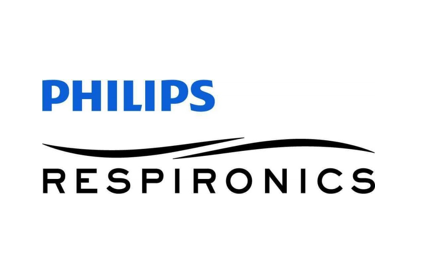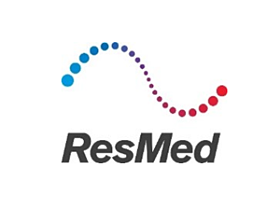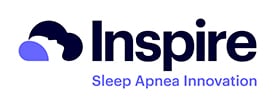By:Kathryn Hansen, BS, CPC, CPMA, REEGTon February 7th, 2020
The Role of the CCSH in Improving Sleep in Patients With Insomnia
It is very common to have patients with occasional to frequent restless nights followed by increased sleepiness during the day, and subsequent performance issues.
In addition to the immediate impact of excessive daytime sleepiness and dysfunction, there is potential to develop chronic insomnia.
There is also considerable data that links chronic insomnia to increased risk for diabetes, obesity, hypertension, plus an impact on the personal safety of an individual with chronic insomnia.
有限公司gnitive Behavioral Therapy and Insomnia
有限公司gnitive behavioral therapy (CBT) is an accepted intervention to treat adults with insomnia. The American Academy of Sleep Medicine and American College of Physicians have both published position statements and papers to support the efficacy of treatment for chronic insomnia with cognitive and behavioral interventions, which includes behavioral interventions such as sleep restriction, stimulus control and education to improve their sleep habits, also known as sleep hygiene.
CBT focuses on what we think about our sleep, which can develop into self-fulfilling outcomes that have the power to sabotage sleep onset and the maintenance of sleep. Plus, CBT addresses negative behaviors that rob one of sleep, such as inappropriate use of caffeine, tobacco, alcohol, sleep aids, bedtime rituals, work patterns, and ruminating or dwelling on negative occurrences while lying awake in bed.
As the complexities of patient care expand, specialization has become increasingly important in all aspects of medical practice. Currently, the scope of cognitive and behavioral therapies includes providers who have completed graduate level didactic training in behavioral sleep medicine to include CBT-I. This may include psychologists, master’s level clinical social workers, physicians, nurse practitioners and physician assistants.
A recent trend shows more registered sleep technologists have pursued graduate-level degrees in fields related to health psychology to include training in CBT-I. Post-graduate education expands the area of the sleep field that focuses on the evaluation and treatment of sleep disorders by addressing behavioral, psychological and physiological factors that interfere with sleep.
Behavioral sleep specialists use evidence-based therapies that often combine behavioral approaches with cognitive techniques. Sometimes, device-based treatments such as light boxes are used for treatment. At times, some of these interventions may be used in conjunction with medications to tolerate medical therapies, such a positive airway therapy for sleep apnea.
Currently, to practice behavioral sleep medicine performing cognitive and behavioral therapies, regulatory requirements require a graduate degree. Will this change? Change is a constant over time.
The CCSH Credential
有限公司mpletion of a certification, such as the CCSH, conveys that the knowledge base and skill levels of the certified CCSH have been thoroughly tested. It demonstrates initiative and a commitment to professional excellence. It is essential to work with a supervising provider and CCSH visits are scheduled only after the patient has had a visit with the attending provider and the diagnosis and treatment plan has been established.
To facilitate effective communication with the supervising provider, the CCSH follows a standardized care plan and documents in the patient medical record detailed notes of observations and recommendations. It is important to include in the notes education provided to family members.
CCSH知道奥迪nce and has the ability to recognize problems, be sensitive to patient cues, and be able to respond accurately and provide support and feedback. It is critical that the CCSH openly communicates with a supervising provider, who may be the credentialed BSM specialist, the patient’s attending or the credentialed sleep specialist.
CCSH Conveys Competency in Managing Sleep Care
For registered sleep technologists who want to expand their clinical services as a clinical sleep educator, a CCSH credential is essential. The exam conveys a professional competency and validates a comprehensive level of knowledge.
病人会识别和预计ro至关重要le of the CCSH in providing the care they need. The credential adds a level of prestige in being identified as a qualified healthcare professional.
One of the challenges for the CCSH is rooted in defining when to refer the patient to a credentialed BSM provider who is licensed to practice in their profession by state regulatory agencies with established expertise in sleep disorders.
Looking for more information on the management of Insomnia in Preparation of the CCSH or RPSGT Exam?
Recently Released -Fundamentals of Sleep Technology, Third Edition
This newly updated textbook provides comprehensive, up-to-date coverage of polysomnography and other technologies in the evaluation and management of sleep disorders in adults and children.
of polysomnography and other technologies in the evaluation and management of sleep disorders in adults and children.
This edition has been extensively updated and expanded to reflect current practice, the latest technology, and the broader roles and responsibilities of the sleep technologist. This textbook is written by and for sleep technologists and is the ideal resource for those practicing in the field of sleep medicine.
The Role of the CCSH
CCSH providers are consultants who provide education, advice and support regarding sleep, sleep therapies and good sleep hygiene, ways to optimize treatment, methods to improve and monitor compliance with prescribed treatment, and in general assist patients in eliminating barriers to care in order to maximize their quality of life.
The CCSH will work closely with the BSM provider, yet not to the exclusion of the licensed provider.
The CCSH performs services under supervision of the licensed provider, who is on-site and available for consultation about our patients. It is this relationship and consistent communication that provides an understanding of when to transition the care to a licensed CBT-I provider.
有限公司ntinuing Education, Behavioral Sleep Medicine, and the CCSH
有限公司ntinuing education is an essential component for the CCSH to include in their professional tool kit in order to remain current with the changing landscape of sleep medicine and the healthcare environment. Added to this is the importance for the CCSH to understand reimbursement guidelines and regulatory standards within the scope of practice. Additionally,a standardized care plan, validated questionnaires, documentation tools and patient educational resources are basic to the CCSH tool kit, which are developed in collaboration with the program director and the BSM provider.
Behavioral sleep medicine courses and pre-recorded webinars incorporating a case-based approach to managing common sleep disorders focused on patient- centered care are available on the Society of Behavioral Sleep Medicine website.
Other published peer-reviewed studies are available from the American Academy of Sleep Medicine.
Many digital apps are available on the market, which patients are using to measure their sleep score, and compliance with therapy. Online CBT-I is now also available. To interpret the digital data, the CCSH is responsible to research the scientific evidence supporting the technology, and differentiate the validity of the data.
Added to the digital prevalence impacting the relationship with our patient, the future for the CCSH will include telehealth technology to communicate with patients and licensed BSM providers.
Are we ready for the integration of digital technology to expand the role of the CCSH? This may be the link to collaborating with licensed providers in the near future.
Summary
Over the past several decades, evidence has clearly shown that behavioral sleep medicine interventions are highly effective and complements an important part of the multidisciplinary approach to treating sleep disorders.
Documentation of specialized experience and skills yields the additional benefits of professional satisfaction and recognition by healthcare organizations and insurers. To augment the work of a CCSH, continuing education is essential to continue working and remaining competent with innovative therapies.
The CCSH is a valuable and knowledgeable liaison between the sleep lab, sleep clinic, DME, hospital and community working with the licensed providers to improve the effectiveness of care and improve the outcomes for the patient.
The future for the CCSH is an opportunity to collaborate with cognitive and behavioral providers as an active specialist dedicated to impacting effective outcomes for the patient with insomnia.
Article originally presented in the A2Zzz 2018, Volume 27, Number 4








